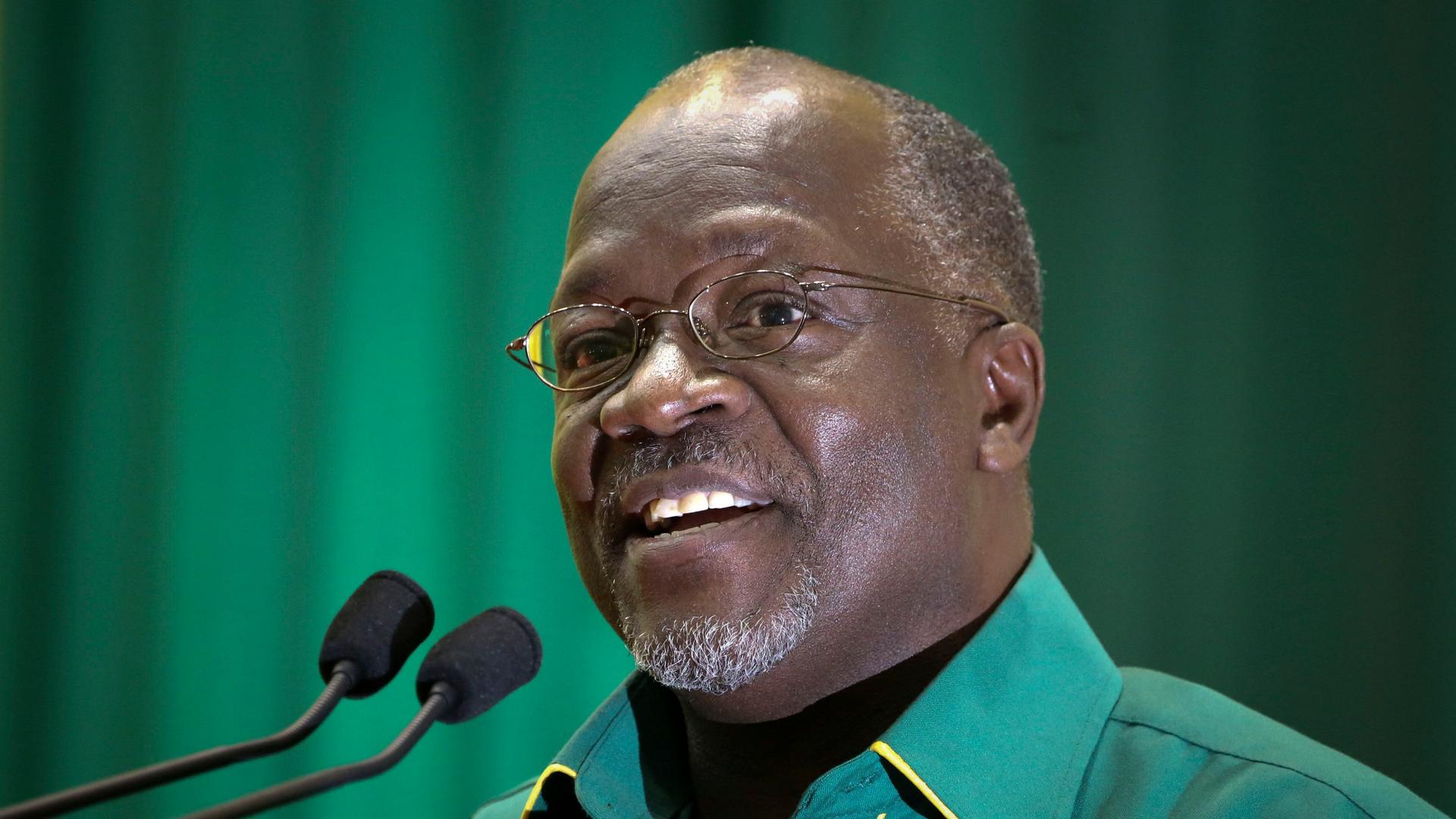Until last month, Tanzania’s President John Magufuli was a fixture in public life.
Even during the COVID-19 pandemic, he addressed large crowds — usually without a mask.
But in recent weeks, rumors circulated over the unknown whereabouts of the president, who disappeared from public view in late February.
Related: A human right in crisis in Tanzania
Government officials fought back against rumors about Magufuli’s ailing health, reassuring all was well in the East African nation. That changed on Wednesday night.
“We have lost our bold leader,” said Vice President Samia Suluhu Hassan, during a solemn public address on Wednesday, on state TV.
“He died of heart disease in the Mzena hospital in Dar es Salaam,” she continued, adding that the late president had been receiving treatment for the problem for 10 years.
Hassan announced that the country would enter a period of mourning for two weeks, with flags flying at half-mast.
But the announcement has done little to squash skepticism over the mysterious circumstances that surround the death of Magufuli, and enduring rumors that he died of COVID-19.
As officials denied rumors about Magufuli’s health, the Tanzanian opposition leader, and former member of parliament, Tundu Lissu, was sounding the alarm about information he was receiving from his intelligence sources.
“They all said the same thing. That the president was critically ill with coronavirus,” Lissu told The World over the phone from his home in Belgium, where he lives in exile.
“There’s been no mention of COVID-19 from the government, which, under Magufuli, has downplayed the pandemic altogether,” Lissu said.
Until recently, Magufuli, who has a PhD in chemistry, claimed there was no coronavirus in Tanzania at all.
In February, the World Health Organization called on Tanzania to report its COVID-19 cases, and share data, which it stopped doing in April 2020.
Recently, during an address to churchgoers, Magufuli praised maskless singers in the audience.
“They know that their God is bigger than masks,” he said.
While many at home and abroad have criticized Magufuli’s lack of COVID-19 response and pressured for transparency, the late president maintained significant support among Tanzanians.
At the crowded Gikomba market in Nairobi, Kenya, Magufuli’s death dominates talk on the street.
Many of the merchants are Tanzanians who sell mitumba, or secondhand clothes and household items imported from abroad.
“I liked him. … He created railways, roads have become nice, he built hospitals.”
“I liked him,” said Peter Michael Tarimo, a 57-year-old merchant from Tarakea, near Mt. Kilimanjaro. “He created railways, roads have become nice, he built hospitals.”
Kendrick Cisse, a younger secondhand clothes dealer from Moshi, agreed.
“In Tanzania, there isn’t any president who has accomplished more than Magufuli,” he argued.
But many Tanzanians — especially human rights activists and dissidents — are breathing a sigh of relief.
“For five years, Tanzanians have been brutalized by a regime that does not care about the rights as they are stipulated in the constitution and our laws.”
“For five years, Tanzanians have been brutalized by a regime that does not care about the rights as they are stipulated in the constitution and our laws,” argued Lissu, who fled Tanzania for his safety following the recent controversial presidential election in which he vyed against Magufuli.
Related: Tanzanian opposition leaders arrested following election
Organizations like Human Rights Watch have recorded the deterioration of human rights in Tanzania and during Magufuli’s administration, which has seen arbitrary arrests of human rights activists and journalists, as well as tightening restrictions on the media.
Related: Tanzania’s internet restrictions during election are ‘despicable’
Lissu has called on the new government — expected to be led by Hassan, as per the country’s constitution — to change course. This begins with acknowledging the coronavirus problem in the country, he said.
“No. 1, change course immediately on COVID-19. Embrace the global effort,” Lissu said.
Our coverage reaches millions each week, but only a small fraction of listeners contribute to sustain our program. We still need 224 more people to donate $100 or $10/monthly to unlock our $67,000 match. Will you help us get there today?
